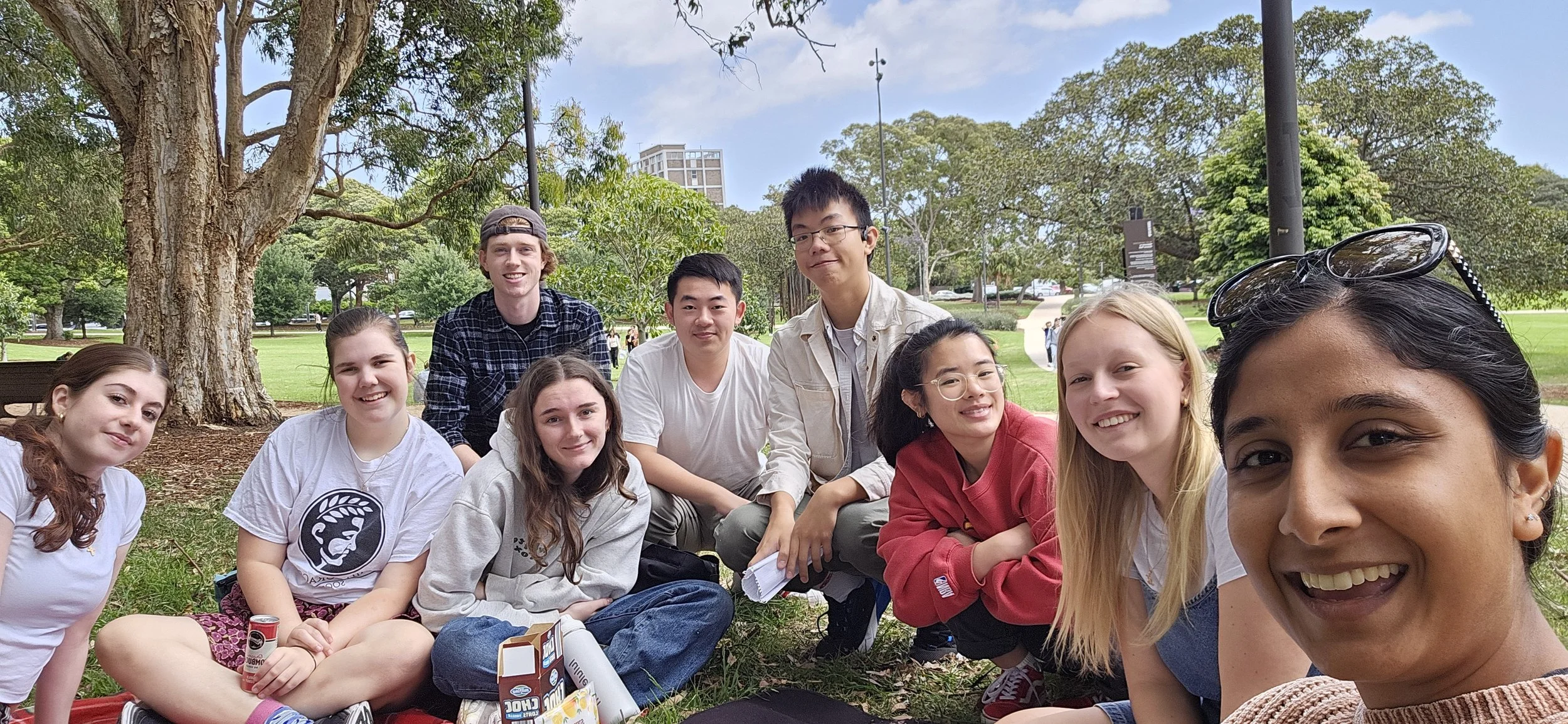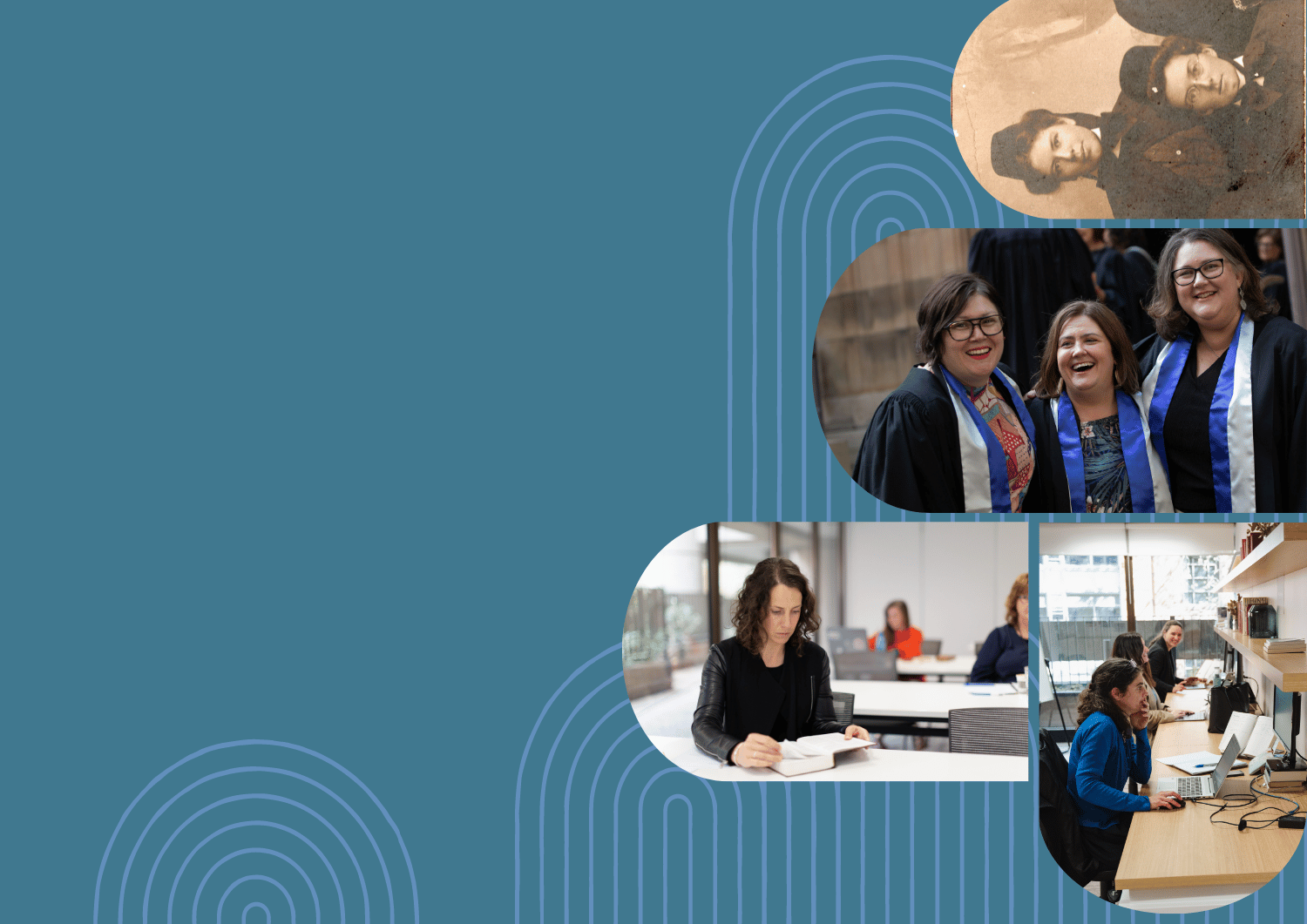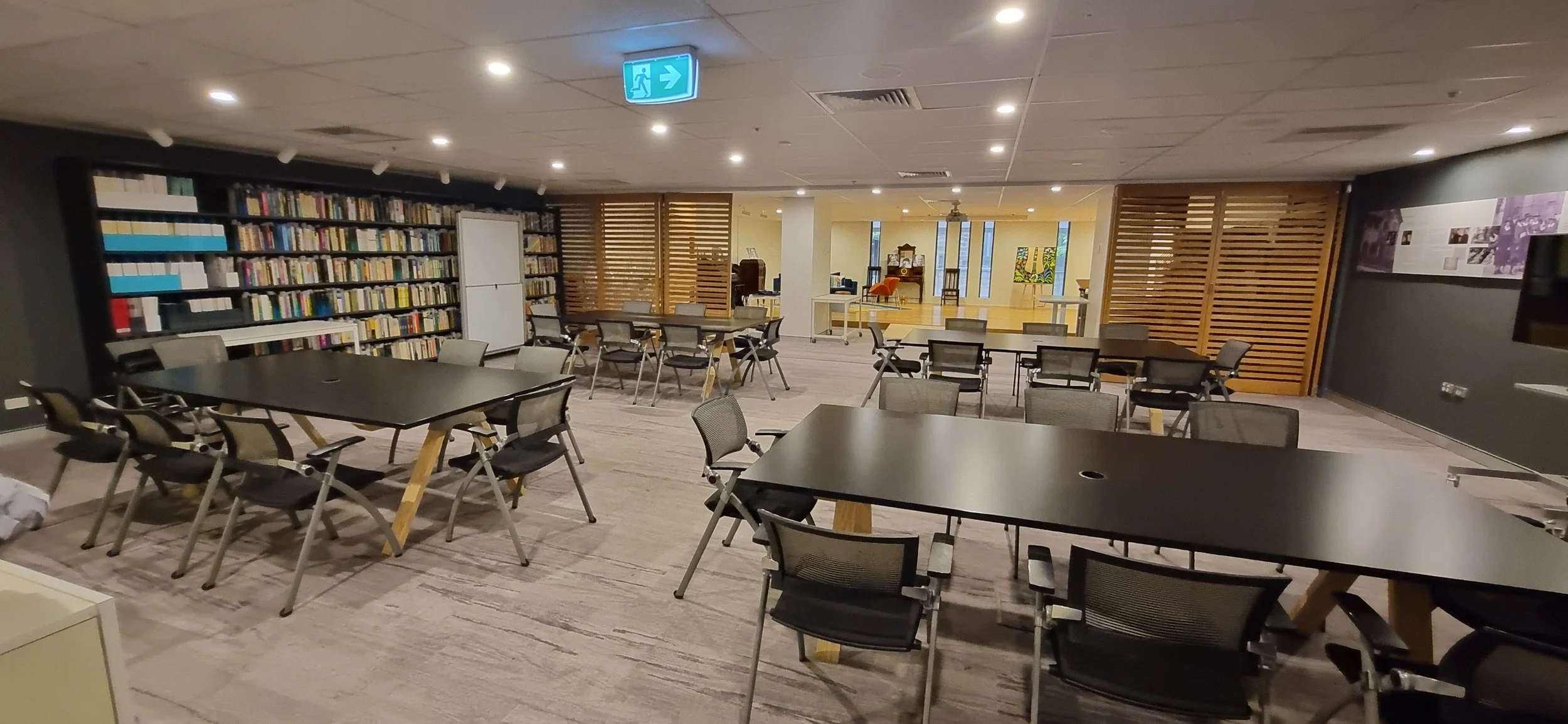Conversations: A real response to the 2020 fires
– By Emma Pitman
Viv and her husband Marty pastor a church on the South Coast in the coastal town of Sussex Inlet. It is a small town of 4,000 that booms to 20,000 in the summer months. January of 2020, though, looked very different as fires tore through the South Coast, altering the sky, the land, and everything in between.
“
Looking back on it now, being up here in Sydney in another different bubble (the fire) seems like a bad dream.”
– Viv Quee
It wasn’t an easy decision for Viv and Marty to make, leaving their home for a few days to attend ADM’s summer School of Theology, Culture and Public Engagement where I first met her. When I ask her what it’s like to be here, she says, “surreal.”
“Looking back on it now, being up here in Sydney in another different bubble (the fire) seems like a bad dream,” she whispered.
As we spoke in between masterclasses, I tried to wrap my head around what it would feel like to come from her fire ravaged small town, to a theology and public engagement conference in the city. I couldn’t help but see the gospel as the common thread for Viv, and the question of what it means to be a person of faith, a Christian voice and leader in a hurting world, is one that many of us, whatever our context, are asking.
The more we talked, the more it became clear that Viv had some answers to this question. I could track where faith, hope and love all appear in her story, what forms they take for her personally, and how they inform her desire to serve. Her story is full of reflections on her community, both parishioners and those she knows as a neighbor or through her work at the local cinema.
Viv reflected an awareness that comes when crisis hits individuals on the margins. She did a lot of the practical and relational work, calling parishioners, or people in the community who she knew were vulnerable: the elderly, those who lived on their own and without transport, people whose mobility was limited, as well as others on the margins of a community who sometimes found themselves scapegoated during a crisis. Viv talked, for instance, about how the Indian owner of the petrol station was harrassed and threatened because of the price of the petrol, and how other misinformation was being spread about him. She sought him out, shook his hand, and apologised for what he was experiencing.
“When I couldn’t get through to someone on the phone, I’d get in the car and drive to their places, even the people I didn’t know,” she said. Apparently, the Buy/Swap/Sell Facebook group for Sussex Inlet had become a go-to space for information and networking so Viv responded.
“People were asking how bad things were,” she said. “People from Sweden or New Zealand with loved ones in Sussex Inlet who couldn’t contact them got in touch. I offered to call in on them and report back and I’m glad I was able to help.”
It was an atmosphere of valid fear, and I could tell Viv had responded to it in love, by checking on others, and then reassuring their loved ones.
I thought of the familiar scripture in 1 John, “perfect love drives out fear” as I listened to Viv and what the mechanics of this looked like in the face of a crisis like the fires. When the sky was black and the southerly was coming, carrying with it the debris of encroaching fires both proof and promise of destruction, fear was as pervasive as the smoke. And yet God’s love somehow anchored those who cried out in help.
At the end of our conversation, Viv considered how we might be able to help others have hope in the midst of tragedy and fear. What kind of hope can we offer those who don’t share our faith? How can we, as imitators of Christ, reflect his love? A love that drives out fear by addressing it, not dismissing it? A love that displaces fear, without shaming those who are afraid.
“On the day when the fires came closest to the house, I admit I panicked. The darkness was apocalyptic and gusts of wind were rolling in. My main concern was ember attack,” Viv said. She rushed out of the house with her dogs, her daughter and a guest, (Marty was at the shops) and drove up to a little flat they had been offered on safer land. As the southerly finally passed, Viv received a text from a new friend in Sweden who was checking in to see how it was going.
“It was really bad at the that moment, very distressing, and yet this woman I didn’t really know said, ‘Peace, Viv. You can have courage.’” Viv’s fear was being addressed in love. She wasn’t judged for being afraid, but reminded of something bigger, of the peace available when we trust God.
When I asked how the historic fires affected her faith, whether positively or negatively, Viv didn’t flinch: “Positive for sure. That southerly should have led to ember attack. I felt like I watched something miraculous.”
Even as she said the word, she seemed surprised, like she was defying her own doubts. Yet, her hope increased as she remembered how so many people all over the world were praying for Australia.
“When I talk about it now, I hope that people will recognise God at work,” she said. “I believe that’s what it was. Maybe it will lead to more conversations about hard things, like fear and death, and about how God’s love challenges both.”
Emma Pitman is a Sydney-based writer and was a 2019 Creative Fellow working on a series of essays.
If you’d like to learn more about having helpful conversations with people from bushfire or drought-affected areas, here are some suggestions from Rev. Dr Keith Condie, co-director of ADM’s Mental Health & Pastoral Care Institute:
Eight ways to care for survivors of bushfire and drought
By Rev. Dr Keith Condie
Natural disasters such as bushfires are traumatic events. The threat to (or loss of) life, property, livestock and livelihoods that often accompany these events can be extremely distressing, made all the more difficult during the Christmas season…














The intersection of faith and mental health: Miriam’s story
If there’s anyone qualified to prepare a series of workshops to equip pastoral caregivers, ministry staff and everyday Christians to better serve the mental health needs of their churches and communities, it’s Miriam. Yet if it weren’t for her six-month period as an ADM Fellow, the workshops simply wouldn’t exist.